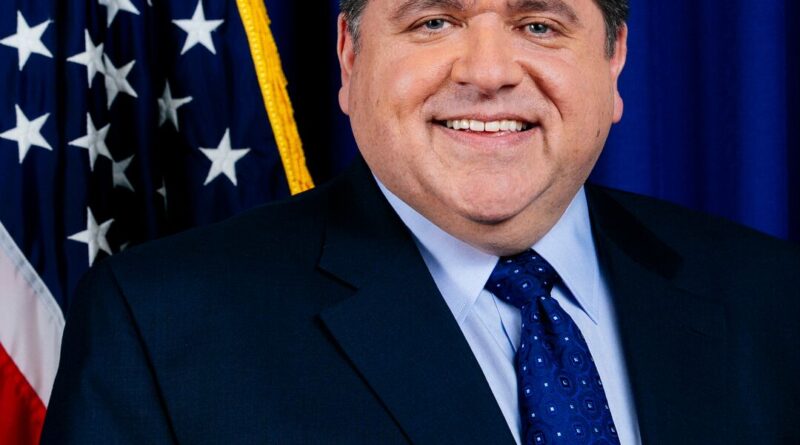Governor Pritzker Calls Out President Trump’s Power Grab
In a recent address, Illinois’ Governor JB Pritzker expressed strong disapproval of President Donald Trump’s threats to deploy federal forces in Chicago, implying his intentions to quell lawlessness. Trump’s campaign of exerting federal force has involved deploying almost 2,000 National Guard members to Washington, D.C., and an equal number to Los Angeles earlier in the year, following anti-ICE (Immigration and Customs Enforcement) protests.
Trump’s negative appraisal of Chicago’s governance and his aim to ‘fix’ the perceived lawlessness there were publicized. The president portrayed Chicago as a city in need of federal assistance, citing pleas of inhabitants wearing red hats, suggesting supporters of Trump. He made particular reference to African American women urging his intervention.
Trump’s indication that he did well with African American voters in previous elections was used as further justification for his potential intervention. His evident confidence in deploying federal troops to Chicago without notable resistance, comes despite no evidence of threats severe enough to necessitate armed troops. The president’s motive suggests an attempt to protect his supporters and manage the city’s crime situation.
The President continued by suggesting his administration could assist New York in the future, further expanding on his strategy of deploying federal forces into cities deemed problematic. Following these remarks by the President, Governor JB Pritzker voiced his concern about the situation, labeling the President’s threats as a dictatorial power grab.
Multiple posts by Pritzker on social media outlined the issues that he believes Trump should be focusing on, such as reducing grocery prices, avoiding Medicaid and SNAP reductions, and releasing the Epstein Files. In contrast, he emphasizes that the public does not desire a forceful takeover of major cities, which he equates to an authoritarian power grab.
Pritzker goes on to accuse Trump of orchestrating chaos to distract from his own problems. In another post, Pritzker expresses that these distractions serve to draw attention away from the harm caused by Trump and his party. He cited the raised goods prices due to tariffs and the potential healthcare and food deprivation of millions as few of the harms caused.
Pritzker highlighted that President Trump’s usage of Washington, D.C., and Los Angeles as examples represents what the Governor considers a testing ground for overreaching authoritarian power. Pritzker also asserts that the President’s ultimate goal is to foster fear within communities and destabilize public safety, thereby justifying his continued abuse of authority.
According to Pritzker, the President aims to manipulate the media and create a spectacle for his own advantage. Pritzker insists on focusing on real law and order and claims substantial results from this stance. The Governor used recent crime data as evidence, highlighting a significant reduction in violent crimes, including homicides, over the past year.
Evidence of this trend is a decrease in the city’s homicide rate by close to 30%, and a decline in shootings almost as significant. The Mayor of Chicago, Brandon Johnson, also drew attention to these improvements when challenging Trump’s negative depiction of the city. Despite criticisms, Pritzker emphasizes that their community-based approach to law enforcement is effective.
Pritzker continued to advocate for local law enforcement, stating that these forces were best suited for managing local neighborhoods due to their physical presence and connection to the community. He reassured residents that the state of Illinois prioritizes their safety and would vehemently protect the state’s sovereignty against invasive federal intervention.
The city of Chicago, despite being a Democratic stronghold and sanctuary city, has been a frequent target of Trump’s criticism over the years. He had threatened federal intervention as far back as January 2017, expressing a severe viewpoint of the city, even likening it to war zones in the Middle East.
News in June reported that a senior Trump official referred to Chicago as a potential location for ICE arrests and deportations. This came in the wake of Chicago’s mayor advocating defiance against President Trump’s immigration crackdowns and the city’s strong movements against both Trump and ICE.
This wave of criticism and potential actions from the Trump administration has shown the complexities of the relationship between federal and local authorities. The situation has thrown into spotlight issues related to authorized power limits and the implications for civil rights and local sovereignty.
Governor Pritzker’s response provides a counter narrative to the President’s claims, emphasizing the efficacy of local law enforcement, the ongoing reduction in crime, and the importance of community empowerment as opposed to invasive federal intervention. Notably, this dispute sheds light on the tension between local governance and federal controls, a delicate balance in any democratic system.

